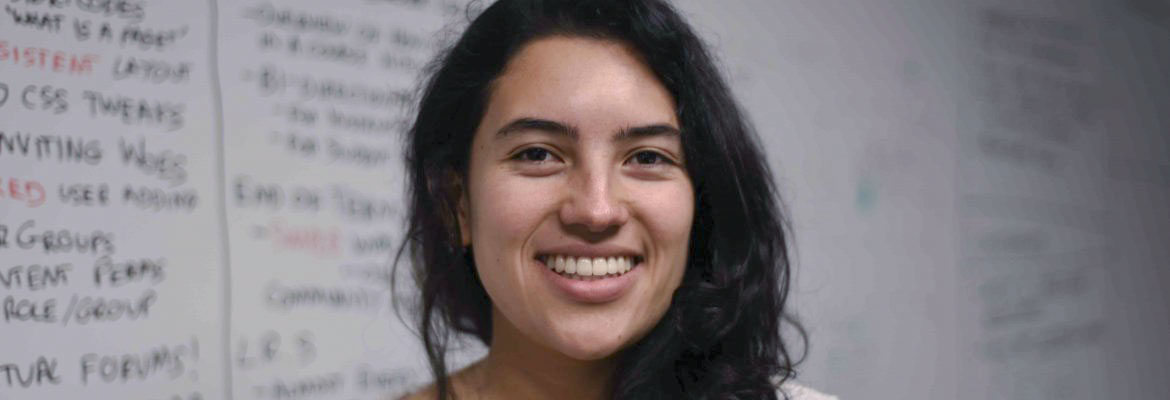Name: Melissa Guzman
Year level: PhD candidate, 3rd year
Department: Ecology
Faculty: Science
How did you become involved?
I did the Instructional Skills Workshop and I was very interested in learning about teaching. Afterwards a student told me to take BIOL 535, Teaching and Learning in the Life Sciences. That course was amazing and it was with [Lacey Samuels]. At the end of that course Lacey told us that they were trying to implement CIRTL at UBC and she told us about the CIRTL Scholar certificate and that we could do a Teaching as Research project.
What is your project?
The idea for my project came about because as a graduate student, especially in Ecology, we have to learn R. Everyone struggles and a lot, mainly because their first exposure to R is during grad school. But because we use it so much, instructors wanted to introduce R in the intermediate- and advanced-level stats courses in the biology department at the undergraduate level. Currently these courses are using programs that nobody uses in the industry or grad school (Jmp). So they want to introduce R to undergraduate students but they don’t know how to do it yet.
Then I became a Software Carpentry instructor. Software Carpentry is an organization that teaches R, Python and general programming to scientists and we would do two-day workshops and try to get all of these grad students to learn R.
I wanted to take some of the concepts of problem-based learning and cognitive load theory that we learned during Teaching and Learning in the Life Sciences [course] and apply it to developing our modules for these different courses — and also taking my experience in Software Carpentry to figure out what is the best way to teach, programming and stats at the same time.
We’re developing R modules and the idea is to implement them in Fall 2017. We expect to see no changes in final exams and midterms of the students because they test mainly the stats portion of the course. However, we hope to see a change in how much the students are using R for their projects and lab reports.
In Fall 2016 we are looking at the pre-cohort, so we are looking at the students that started R or haven’t taken R at all. At the end of Fall 2017 we are going to look at the post-cohort, so the students that would have taken the modules. We have next year to develop the modules.
What challenges have you faced and how have you overcome them?
One of the challenges is the student’s not felling too comfortable with us getting access to their marks and surveys. We’ve tried to reassure them that their participation is not compulsory and that the professor will not have access to this. Their participation is not going to affect their marks.
What is the impact of your project on teaching?
Many of the biology professors — hopefully this applies to more than just biology — are having a hard time teaching R to their undergraduate students, so I hope that we can get this to a wider audience. This will show everyone that we can use the research that has been done on teaching to inform us how we are supposed to teach.
How about the impact on research?
In terms of research, programming is becoming very popular. For example, they’ve just opened a Master of Data Science. I am hoping that we can use the things that we’ve learned here in this project to further continue researching on how we should be teaching programming to undergraduate and graduate-level students.
The other aspect of my project is the cognitive load theory, I hope this project can help further the field on how to apply this theory to other courses.
